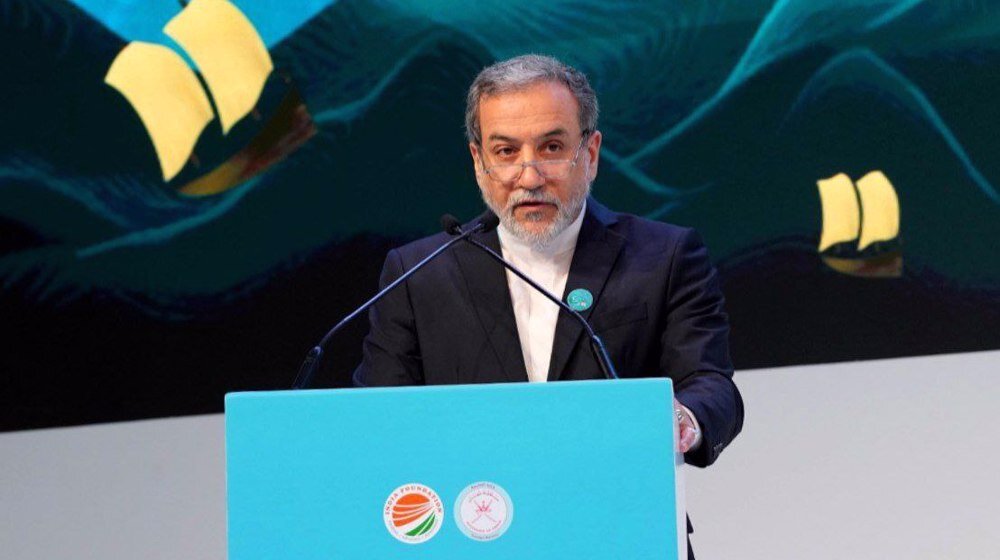No place for global power struggles in Indian Ocean, says Iran FM

TEHRAN – Iranian Foreign Minister Abbas Araghchi has cautioned against the influence of external powers in the Indian Ocean region, warning that geopolitical rivalries must not dictate its future.
Speaking at the 8th Indian Ocean Conference in Muscat, Oman, Araghchi stressed that the destiny of the region should be shaped by its own nations, serving the interests of their people rather than being manipulated by foreign actors seeking to exploit political, economic, and security gaps.
He emphasized the need for regional cooperation to counter external interference, urging Indian Ocean nations to take control of their collective future through mutual trust and collaboration.
The Iranian Navy, he added, has consistently worked alongside neighboring states to combat piracy, drug trafficking, and organized crime, ensuring safe navigation in the region’s waters. However, he cautioned that foreign powers are seeking to exploit economic, political, and security vulnerabilities in the region, potentially undermining natural cooperation among Indian Ocean nations.
“We cannot allow the geopolitical rivalries of global powers to dictate the future of this region,” Araghchi warned. “The destiny of the Indian Ocean must be decided by the countries within it, serving the interests of their people.”
Iran’s involvement in multilateral organizations such as the Indian Ocean Rim Association (IORA) and the Indian Ocean Naval Symposium (IONS), Araghchi noted, reflects the country’s dedication to fostering regional cooperation. He warned that certain external actors have sought to exploit divisions in the region for their own political and economic gain, emphasizing that the future of the Indian Ocean should be determined by the countries within it.
Araghchi expressed appreciation for Oman’s role as a longstanding mediator and advocate of dialogue in the region. He called for greater unity among Indian Ocean nations, asserting that sustainable development and regional stability could only be achieved through mutual trust and cooperation.
Addressing an audience of regional leaders and policymakers, Araghchi underscored the historical role of the Indian Ocean as a vital link between civilizations, serving as a major route for trade and cultural exchange for thousands of years. However, he stressed that in today’s rapidly evolving global economy, traditional trade routes alone are insufficient. Instead, he argued, the Indian Ocean should serve as a strategic center for economic collaboration, regional security, and technological advancement.
Iran, he noted, is well-positioned to play a leading role in this transformation, given its 5,800 kilometers of coastline, including 4,900 kilometers along the Indian Ocean. The Iranian government has adopted a “maritime-oriented” policy, aiming to turn the country’s southern coast into a gateway for global economic integration.
Araghchi also underscored the strategic importance of Iran’s Makran coast, calling for its transformation into a major economic hub for both Iran and the wider region. He described the coastal area along the Sea of Oman as a "lost paradise" with untapped economic potential that must be prioritized for development.
“The Makran coast holds a special place,” Araghchi stated. “For centuries, its natural and economic potential has been overlooked, but it is now a national development priority. This region must become the future economic hub of Iran and the region.”
The 8th Indian Ocean Conference, hosted in Muscat, brings together leaders, diplomats, and experts from across the region to discuss the future of maritime trade, security, and economic integration.
Leave a Comment